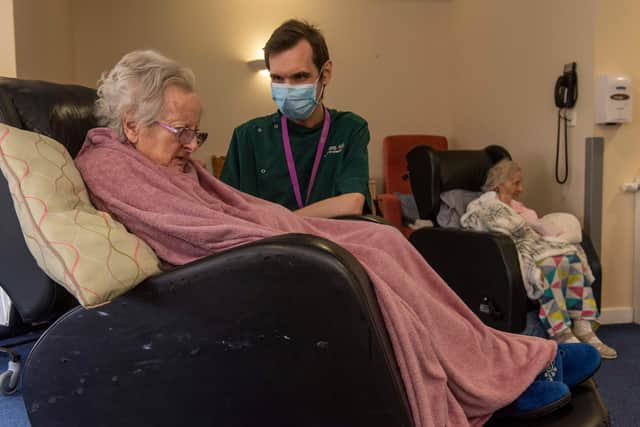Union calls for immediate £2-an-hour rise for Falkirk's key workers
and live on Freeview channel 276
Unite today welcomed a Scottish Parliament motion lodged by Neil Findlay MSP calling on the Scottish Government to bring private sector care providers into a national collective bargaining framework.
The motion, entitled Private Sector Care Providers, states: “That the Parliament calls on the Scottish Government to bring together private sector care providers and trade unions to establish a system of national collective bargaining to ensure care workers’ pay and conditions reflect the important job they do.”
Advertisement
Hide AdAdvertisement
Hide AdUnite Scotland has been calling for urgent reform of the care home sector by drawing attention to the vital role of carers under local authority, private, and third sector control in addition to the role of unpaid carers.


Unite, along with the whole trade union movement, is also asking for an immediate £2 an hour rise for all key workers, including carers.
Pat Rafferty, Unite Scottish secretary, said: “We welcome the motion lodged by Neil Findlay calling for an integrated care home sector under a national bargaining framework.
“Scotland’s care home sector is uncoordinated, fragmented and disorganised. We believe reform is urgently required and in our view all care homes should be brought under direct council control as part of an overall publicly controlled national care service.
Advertisement
Hide AdAdvertisement
Hide Ad“The COVID-19 pandemic has starkly demonstrated how undervalued our carers have been and the issue of historic low pay must be addressed. It’s vital that a national consensus develops post-pandemic about how we treat and value those who have literally put their lives on the line.”